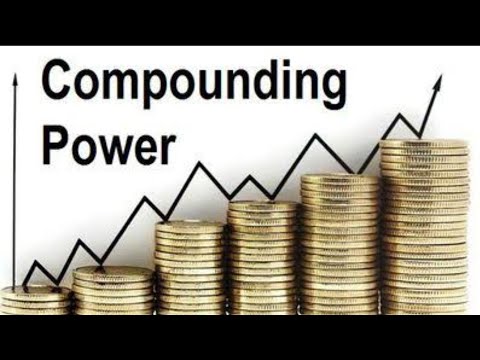The Power of Compounding in Stocks: Make Small Investments Become Huge Wealth

Strong 8k brings an ultra-HD IPTV experience to your living room and your pocket.
You don't have to be wealthy to begin accumulating wealth. Actually, a small amount of money, invested early and wisely, can become something large. How? By the magic of compounding.
Compounding is the strongest force in individual finance, and when you apply it in the stock market, it works miracles. It has nothing to do with luck—it has to do with patience, good habits, and your money working for you over the years.
Let's deconstruct how this operates and how you can benefit maximally from it.
What Is Compounding, Really?
Imagine compounding as planting a tree. You nourish it, tend to it, and in time it develops. Then the tree begins to produce more trees—those do the same thing—and soon enough you have a forest.
It's the same with your money. You put in $1,000 and it grows 10% in a year. You have $1,100. Next year, you make 10% on $1,100—not on the original $1,000. That's $1,210. The year after that, even more. Your money continues to earn, and so do the earnings on your earnings. That's the magic of compounding.
Why Starting Early Gives You an Edge?
Time is your advantage. The earlier you invest, the longer your money can grow.
Assume you save $100 a month beginning at age 20 and earn 8% annually. At age 60, you might accumulate more than $300,000.
Now, if you begin at 30 with the same strategy, you'd have approximately $140,000. That's a difference of well over a $150,000—simply because you began 10 years sooner. It's evidence that small amounts + time = enormous results.
How Compounding Works with Stocks?
Stocks are a good way to utilize compounding to increase your money. As you invest in solid companies, they appreciate and frequently reward you with a portion of their profit through dividends. If you reinvest the dividends, your investment compounds even faster.
Here's how you can make it happen:
1. Invest In Dividend Stocks
Some businesses reward you with a small sum periodically—that's a dividend. You can use that money to purchase more shares, and that makes your investment snowball.
Discover how dividend reinvestment can make your portfolio grow
2. Invest in Index Funds
If you’re just starting out, index funds are a simple way to get in. They spread your investment across many companies and usually grow steadily over time. They’re low-cost, easy to manage, and great for long-term growth.
Explore how index funds make investing easy
3. Stick With It
One of the smartest things you can do is hold on. Don't get nervous when the market declines—those fluctuations are natural. Compounding works most efficiently when your money remains invested over the long term.
Compounding + Passive Income = Freedom
Compounding isn't only a growth engine—it can also generate passive income. This is income you receive without working for it constantly, such as rent on a rental property, royalties on a book or song, or dividends on stocks.
When you reinvest your passive income rather than spend it, you're piling more fuel on the compounding flame. And as the years go by, this generates even more income, so you're inching your way towards financial freedom each year.
Smart Hints to Get Going
Follow these simple steps to make compounding do its magic for you:
- Begin immediately – The sooner, the better—even if it's only a small amount.
- Be regular – Get into the habit of investing regularly.
- Reinvest your dividends – Don't cash them in. Let them continue to grow.
- Don't withdraw money unless you need it – Let it stay and grow.
- Keep learning – The more you learn about stocks and investing, the better your returns.
Conclusion
You don't have to have a lot of money to begin accumulating wealth—you just have to begin. The compounding effect can take your little efforts and make them big in the long run. The trick is to be patient, remain invested, and keep your long-term objectives in mind.
Let your money work hard. No matter what you're saving for — early retirement, a dream house, or just peace of mind — compounding in the stock market can make it happen.
Note: IndiBlogHub features both user-submitted and editorial content. We do not verify third-party contributions. Read our Disclaimer and Privacy Policyfor details.







